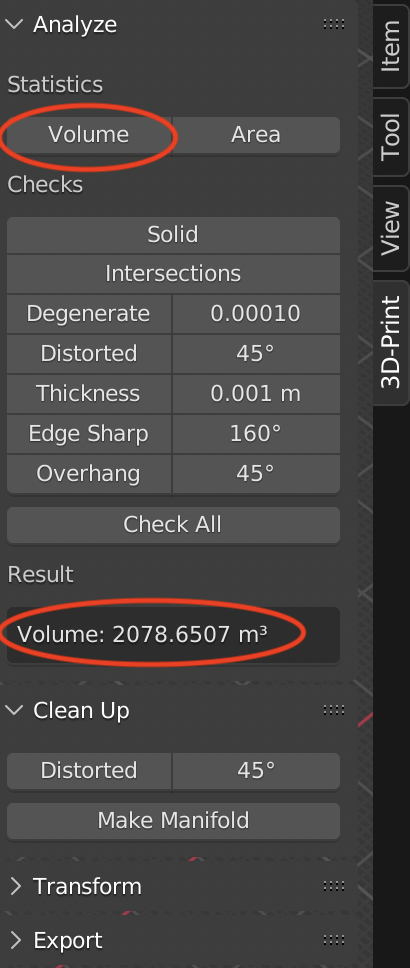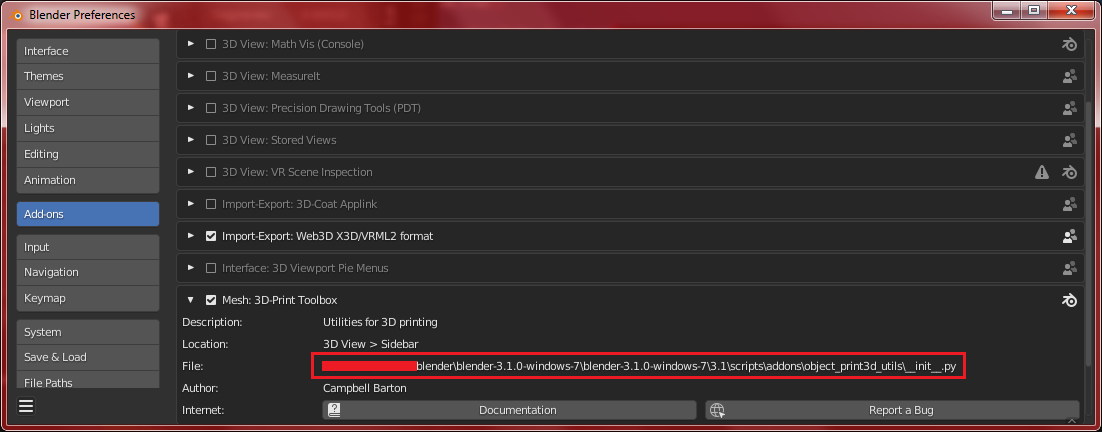Using the 3D-Print Toolbox add-on you can obtain object volumes. I have a lot of objects in my scene that I would like to print the volume value from and I was hoping I could do this through python. When I manually click on the Analyse -> Statistics -> "volume button" nothing shows up in the info panel where usually a new entry shows up after an action in the blender UI.
I would highly appreciate any ideas or feedback!
Alex


